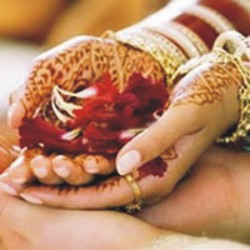Your Advocate
This week Your Advocate is Barrister Omar Khan Joy, Advocate, Supreme Court of Bangladesh. He is the head of the chambers of a renowned law firm, namely, 'Legal Counsel', which has expertise mainly in commercial law, corporate law, family law, employment and labor law, land law, banking law, constitutional law, criminal law, IPR and in conducting litigations before courts of different hierarchies. Our civil and criminal law experts from reputed law chambers will provide the legal summary advice.
 Query
Query
I am in a relationship with a non-muslim girl. How can i marry her and under which law? Whether a marriage between us will be a valid one? What will be the consequence of this marriage?
Arif
Dhaka.
Response
Upon receipt of your query I have understood that you are a Muslim and you are in a relationship with a non-muslim girl. As you have not mentioned which religion the girl belongs to, I will discuss the situation in regard to the different religions. In these days the number of cross religious marriage is increasing and as such it is important to have a clear concept regarding the same.
Marriage is a social and legal union of a man and a woman in order to live together and often to have child. So far as marriage is concerned different laws are applicable for the followers of different religions in Bangladesh.
Under the Muslim law, a Muslim boy can have a legal marriage with a Kitabiyah (i.e. a Jewish or a Christian girl) but a Muslim girl cannot have a legal marriage with a Kitabi (i.e. a Jewish or a Christian boy). The provisions of Muslim law regarding marriage are applied to the Muslims and the provisions of marriage under Hindu Law are applicable to the Hindus. The Special Marriage Act is enacted to legalize cross religion marriages. But the 1872 Act is applicable only for certain special types of marriages. It is clearly mentioned in section 2 of the said Act of 1872 that this Act will be applicable only in two circumstances: (1) where neither of the bride or the bridegroom belongs to the Christian, Jewish, Hindu, Muslim, Parsi, Buddhist, Sikh or Jaina religion, OR (2) where each of the parties professes Hindu, Buddhist, Sikh or Jaina Religion. It is very important to note that under the first situation if none of the boy or girl belongs to any of the aforesaid religions, then they are practically becoming 'Nastik'/ atheist. And under the second situation, both the boy and the girl must belong to any of the four stated religions, where Islam is not mentioned. Consequently, the Special Marriage Act does not at all permit marriages between Hindu and Muslim keeping their religion intact!
At the time of marriage under the Special Marriage Act, 1872 both the parties have to sign two separate 'Declaration Forms'. In both the Forms it is mentioned that neither of the parties professes the Christian, Jewish, Hindu, Muslim, Parsi, Buddhist, Sikh or Jaina Religion OR each of the parties professes Hindu, Buddhist, Sikh or Jaina religion. By signing the Declaration Form they are ratifying the points mentioned in the Form and also the fact that the mentioned information is true. So when the parties have signed the declaration, both the parties have declared themselves as non-believers.
The Special Marriage Act was enacted in 1872 and is in real need of amendment to allow Hindu-Muslim marriages. For example, the Act has been amended in India and it is lawful in India to register a Hindu-Muslim marriage. The need for amendment is long overdue. However backdated the law is, this still represents the Bangladeshi legal position regarding Hindu-Muslim marriage and honestly speaking we cannot but accept it until and unless the law is amended accordingly.
So you can marry her without any legal hassle, if she is a Christian. If she is a Hindu or Buddhist, you may marry her by both of you becoming non-believer.
For detailed query contact: omar@legalcounselbd.com.